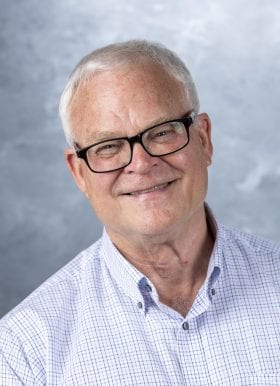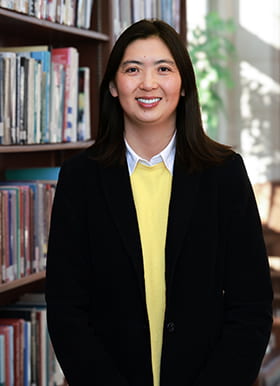Under the new policy, every child in the Central Asian nation is receiving an account with assets from natural-resource wealth.
In a historic move to prepare future generations for emerging economic realities, Kazakhstan has launched a national Child Development Account (CDA) policy informed by research from the Center for Social Development (CSD). The development opens the door on a policy structure for channeling natural-resource wealth to invest in children and build human capital.
Through this innovative policy, each child in Kazakhstan receives an asset-building account, and 50% of the dividends from the National Fund will be transferred yearly into the new National Fund for Children for distribution to the CDAs of individual beneficiaries.
“Providing this opportunity to children today will not only ensure their financial stability in the future, but it will also be a step towards achieving UN Sustainable Development Goal 1, ‘End Poverty,’” Dr. Akmaral Alnazarova, Kazakhstan’s Minister of Health, told CSD.
Since the first of the year, nearly 7 million children have received accounts, and over $695 million in initial deposits have been made, the National Pension Fund administrator, the UAPF, announced in February. The first of these annual transfers amounted to $100.52 per beneficiary.
“The launch of Kazakhstan’s CDA policy is an important achievement,” said Michael Sherraden, the George Warren Brown Distinguished University Professor at Washington University in St. Louis and founding director of CSD. “The nation is leveraging natural resources to create opportunities for every child, and build a stronger economy in the long run.”
“The Kazakhstan CDA policy may serve as a model for other nations, showing how natural-resource revenue can benefit the whole population,” Sherraden added. “Three billion people live in low- to middle-income countries with natural-resource wealth, yet most of this wealth is currently not developing the population. CDAs could become a more positive strategy.”
Originally proposed by Sherraden, CDA policy is designed to provide a structured opportunity for asset accumulation, especially for disadvantaged families. The accounts are typically opened automatically at the beneficiary’s birth and seeded with a substantial deposit of public funds, which grow with investment earnings until used for education, career development, and social stability. Extensively tested through the long-running SEED for Oklahoma Kids experiment, the policy has been implemented in Singapore, the United Kingdom, Israel, and several other countries. CDA policy has also been implemented in some U.S. states.
In 2019 and 2020, several years prior to the launch of Kazakhstan’s CDA policy, Research Assistant Professor Aytakin Huseynli, then a doctoral student, undertook research in six post-Soviet nations – some with natural-resource wealth and some without. She interviewed Kazakh officials, policymakers, academics, social workers, and other social-service professionals about the potential of a CDA policy using natural resource wealth for the well-being of children there, sharing CSD research on policy components. These discussions planted the seed for consideration of a CDA policy in Kazakhstan.
The interviews also provided data for Huseynli’s doctoral dissertation and subsequent publications. She continues to share the findings with officials and scholars, most recently in and an international conference in Baku, Azerbaijan, in November 2023.
Huseynli and Sherraden revealed some of the top-level insights in a recent policy brief, writing, “Leaders of resource-rich post-Soviet countries envision improvements to human capital—to ‘turn black gold into human gold’—especially among the younger population of these countries. CDA policy is an evidence-based strategy for achieving this goal.”
“If both Kazakhstan and Azerbaijan implemented CDA policies,” they noted, “the initiatives would become examples for up to 80 other resource-rich developing countries.”
Huseynli sees Kazakhstan’s new undertaking as a milestone. It is the first low- to middle-income country to create a universal CDA policy.
“In 2022, President Kassym-Jomart Tokayev outlined an ambitious proposal to invest Kazakhstan’s natural-resource revenues for the nation’s children through a universal CDA system,” said Huseynli. “The policy launched this year embodies that proposal, and our research has shown that such policies can profoundly shape the trajectories of child beneficiaries. Asset-building policies funded by oil-gas-mineral wealth are effective and pragmatic strategies which can change the direction of social and economic development in low-to-middle-income extractive industries.”
The National Fund for Children: A pioneering funding mechanism
With substantial deposits of petroleum, natural gas, and minerals, Kazakhstan is the wealthiest nation in Central Asia. A large portion of those revenues go into the National Fund, a sovereign wealth fund. Each year the National Fund generates returns, or dividends, and the National Bank of Kazakhstan will transfer one half of these dividends to the new National Fund for Children for distribution into the new CDAs.
Regarding administration of CDAs, Kazakhstan’s National Pension Fund administrator, the UAPF, will oversee the new National Fund for Children and provide the platform for distribution and management of CDAs. Drawing on data from the Ministry of Justice, the UAPF will automatically enroll newborns in the new CDA policy and transfer assets into accounts.
“This is an experienced and trusted government agency, and very Importantly, a new policy structure does not have to be created,” noted Sherraden.
Assets in the CDAs will grow tax free with annual deposits and investment earnings. To provide partial protection against inflation, CDA assets will be held in U.S. dollars.
Empowering future generations
According to estimates from Kazakhstan’s Bureau of National Statistics, the nation’s nearly 7 million children represent approximately one third of the population, and some 400,000 more are born each year. Each child’s CDA will receive ongoing annual deposits through the new policy. All children under 18 who were born prior to the launch also receive an account.
Beneficiaries and their parents can access account information via personal portals at eGov.kz and the UAPF. CDA assets remain restricted until beneficiaries turn 18, when the accumulated funds can be used for higher education or housing. These two social-development uses are fundamental for social and economic well-being, and are well-documented social determinants of health, which can lead to a healthier population.
If a CDA beneficiary changes citizenship or establishes permanent residence outside of Kazakhstan, assets in the CDA will be returned to the National Fund for Children. Assets not used by the beneficiary within 10 years – that is, by age 28 – will be transferred to the beneficiary’s pension account.
Sherraden noted that these features have broad implications. “In other words,” he observed, “the CDA can lead automatically to a policy for lifelong asset building. This is a policy arrangement that can be built upon positively going forward.”
“Child Development Accounts are not only a promising part of the state’s social policy, they are a consequence of building a course towards systemic measures,” said Dinara Yessimova, head of the National Association Schools of Social Work, acting head of the National Alliance of Professional Social Workers of Kazakhstan, and associate professor of the Department of Sociology L.N. Gumuliyev Eurasian National University.
A growing population
With the launch of the National Fund for Children policy, Kazakhstan’s seven million children join more than 15 million global counterparts who have assets in CDAs. Through emerging national policies and accounts for new birth cohorts, the total number of CDAs will continue to grow.
“The launch of the Child Development Account policy in Kazakhstan opens an exciting chapter for all children under 18,” said CSD International Director Li Zou. “We look forward to showcasing the Kazakhstan example in the global network of CDA policymakers, scholars, and key stakeholders in the future.”
As nations in Central Asia contemplate a future less tethered to fossil fuels, Kazakhstan’s innovative CDA policy offers a mechanism for funding investments in human capital to build a knowledge- and skill-based economy for the future.
| Kazakhstan’s National Fund for Children CDA and Policy Design Elements | |
| CDA Policy Design Elements | Kazakhstan’s CDA policy |
| Universal Eligibility | Yes – All minor citizens of Kazakhstan are eligible for enrollment. |
| Automatic Enrollment | Yes – The UAPF (Unified Accumulative Pension Fund), which oversees the National Fund for Children, automatically enrolls eligible children. |
| At-Birth Start | Yes – The UAPF draws upon data from the Ministry of Justice to identify and enroll eligible newborns. |
| Automatic Initial Deposit | Yes – The National Bank of Kazakhstan transfers 50% of returns from annual revenue from Kazakhstan’s National Fund to the new National Fund for Children, from which UAPF automatically transfers the assets to individual CDAs. |
| Automatic Progressive Subsidy | No – Under the CDA policy, the transfer amount does not vary by beneficiary need or disadvantage. |
| Centralized Savings Plan | Yes – Assets are held by the National Fund for Children in centrally managed CDAs. |
| Investment Growth Potential | Yes – Assets held in the National Fund for Children and in CDAs grow with investment earnings. |
| Targeted Investment Options | No – Assets in the CDAs are centrally managed, and beneficiaries have no role in selecting investment options. |
| Restricted Withdrawals | Yes – Access to assets in CDAs is restricted until the beneficiary reaches the age of 18 and then may be used only for education or housing, or carried forward into the National Pension Fund. |
| Means-Tested Public Benefit Exclusions | Unknown – At this writing, we are aware no effect on eligibility for any other government benefits. |
| For more on the 10 key design elements of CDA policy, see M. M. Clancy & S. G. Beverly, Statewide Child Development Account policies: Key design elements. | |
Learn more

Aytakin Huseynli
Assistant Research Professor, Brown School at Washington University in St. Louis
- Email: ahuseynli@nospam.wustl.edu

Michael Sherraden
CSD Founding Director,
George Warren Brown Distinguished University Professor
- Email: sherrad@nospam.wustl.edu

Li Zou
CSD International Director,
Director of the Global Assets Project
- Email: lzou@nospam.wustl.edu
